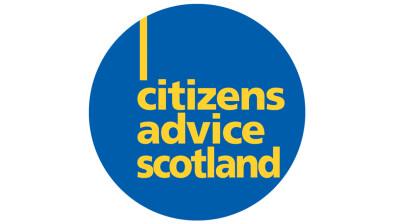CAS: Demand for crisis financial advice up by 40% in a year

The number of people seeking on financial advice from Citizens Advice Scotland (CAS) has increased by more than 40% in just one year, the charity has revealed.
New data has shown that Citizens Advice Bureaux gave advice relating to crisis support almost 120,000 times in 2022/23.
The charity, which has published its first annual Cost of Living Analysis, found demand for crisis support advice increased to 118,384 pieces of advice from 84,103 in 2021/22. This covers advice such as Crisis Grants from the Scottish Welfare Fund, fuel vouchers, and other charitable support.
The report also shows a large increase in demand for energy advice, which was provided 97,373 times.
The analysis reveals certain demographics sought cost-of-living-related advice, particularly crisis and food insecurity advice at a higher rate than they sought advice generally. These groups included council tenants, those unable to work and single person, working-age households.
The analysis also shows the patterns of advice people have sought from the wraparound service of the network. In one in five occasions, people have needed food insecurity advice having needed further help having sought advice with utilities.
Citizens Advice Scotland chief executive Derek Mitchell said: “For the past year CAS has been looking deeper into advice demand during the cost of living crisis. This analysis for the past year reveals a number of concerning things.
“Higher demand for energy advice has further consequences, with people also seeking support around crisis grants and food insecurity. Policymakers should not be fooled into thinking warmer weather and potentially falling bills later this year will mean an end to this crisis. The winter has massively reduced people’s financial resilience and we will be living with the legacy of that for some time.
“Meanwhile, some people seeking cost of living advice are at risk of being a forgotten population. It is absolutely right that policy makers have ensured support for vulnerable groups such as families with children and pensioners, however our data suggest working age, single person households, those unable to work, and council tenants have sought cost-of living-related support at a higher level than they seek advice generally. These groups appear to be particularly at risk to us.
“During the pandemic, policymakers spoke warmly about the need to ‘build back better’ – that same sort of intention is needed now. We need to move beyond warm words to real delivery. It is welcome that the First Minister has made reducing poverty a central mission to his government. This is something that requires real urgency as our evidence points towards many people seeing a direct link between higher bills and empty food cupboards.
“If people are worried about money or bills, they can seek free, confidential and impartial advice from their local CAB or our online platforms. Our advisers get real results with one in six people seeing a financial gain after seeking advice last year, the average value of which was over £4,200.”
A spokesman for the Scottish Government said: “Tackling poverty and protecting people from impact of the current cost-of-living crisis is one of the Scottish Government’s three critical missions.
“That is why the First Minister acted swiftly and decisively to triple the Fuel Insecurity Fund, which continues to be a direct lifeline for many thousands of households, to £30m this year.
“The Scottish Government prioritised urgent cash-first supports this winter including £1.8m for food groups and an additional £2.5m to local authorities to boost the Scottish Welfare Fund.
“Most of the key policy levers needed to address the crisis still lie with the UK Government. We continue to urge them to use all the levers at their disposal to tackle this emergency on the scale required.”
The spokesman added, however, that “only with full powers of independence can we eradicate inequality and poverty”.
A spokesman for the Treasury said: “We recognise the impact that rising prices are having at home, which is why we are providing significant support over this year and next, worth on average £3,300 per household.
“This includes holding down energy bills, uplifting benefits and the state pension in line with inflation and increasing the national living wage, as well as delivering hundreds of pounds in direct cash payments to millions of vulnerable households.
“Tackling inflation is this government’s number one priority, with a plan to halve inflation this year and lay the foundations for the long-term growth that will improve living standards for everyone.”





